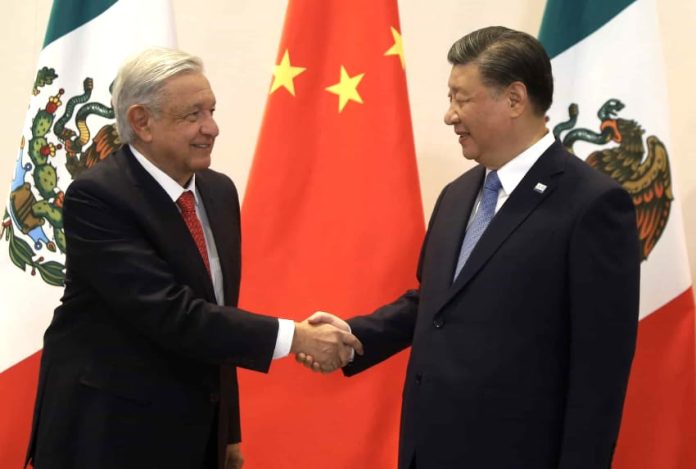One trend that we at Mexico News Daily are covering closely is the significant and accelerating amount of Chinese investment and its implications across multiple industries in Mexico.
Nearshoring trends are forcing companies across industries to “get more local”, and the Chinese are moving at the speed of light. The automotive industry is just the tip of the iceberg of Chinese investment coming to Mexico, and we have recently seen significant announcements from Chinese companies in industries as diverse as furniture, appliances, solar power plants, tires and construction equipment in just the past few months.
I have also written about this trend, and provided a basic framework on why it matters, and how to think about it.
Some recent news in the Mexican automotive industry should bring some urgency to the discussion.
Just a few days ago, we reported that sales of Chinese cars in Mexico were up 63% in 2023 and now represent nearly 20% of all cars sold in the country. This is a really big deal!
Also just days ago, another Chinese auto company announced a large investment in a new electric auto plant in northern Mexico.
Given that cars and auto parts make up the largest percentage of USMCA trade and are arguably the biggest success story of cross-border cooperation and integration of the agreement, the thought of such significant investment and growth of Chinese businesses into Mexico should be a major and concerning wake up call.
The Chinese investment up to this point has been primarily in the auto parts sector, but all indications are that car assembly plants will be coming soon to Mexico. Given the speed of investment and growth taking place, a few important questions should be considered.
How will other foreign car companies with investments in North America compete with the Chinese car companies? Will they begin to purchase more auto parts from newly localized Chinese companies in Mexico to stay competitive and disrupt their current supply chains?
This past year we saw a bitter strike between the UAW and the “Big 3” U.S. carmakers, which ended in significant increases in pay and benefits for workers. How will these companies that have plants in the U.S. and Canada be competitive with Chinese cars being made in Mexico?
Just this week, Elon Musk, the CEO of Tesla, said during the company’s quarterly earnings call that “if there are not trade barriers established, Chinese EV companies will pretty much demolish most other car companies in the world.”
How will politicians in the U.S., Canada and Mexico respond? Will the U.S. consider breaking or modifying the USMCA free trade agreement to raise tariffs on Chinese cars made in Mexico to protect American and Canadian UAW jobs? Will the U.S. and Canada allow Chinese cars made in Mexico to enter duty-free? Will Mexico somehow try to find a path to cater to both Chinese auto companies and U.S./Canadian politicians?
Mexico needs job creation and investment, but it is naive to imagine such significant Chinese investment will not cause serious relationship problems between Mexico and the U.S. and Canada in the future.
The USMCA leadership cannot let the issue of Chinese investment into Mexico set back or reverse a trade agreement that has done so much good for North America over the past three decades.
If politicians from all three countries don’t get out in front of this issue, and quickly, it’s hard to imagine it not causing serious trade issues and ultimately becoming a major political issue later in the year.
We need our leadership focused on making North American cooperation stronger and more comprehensive, not sidetracked and weakened by the disruption of Chinese investment. Understandably, the region has a lot of other major issues to manage right now, but this one is too important to ignore. Wake up North America!
Travis Bembenek is the CEO of Mexico News Daily and has been living, working or playing in Mexico for over 27 years.
